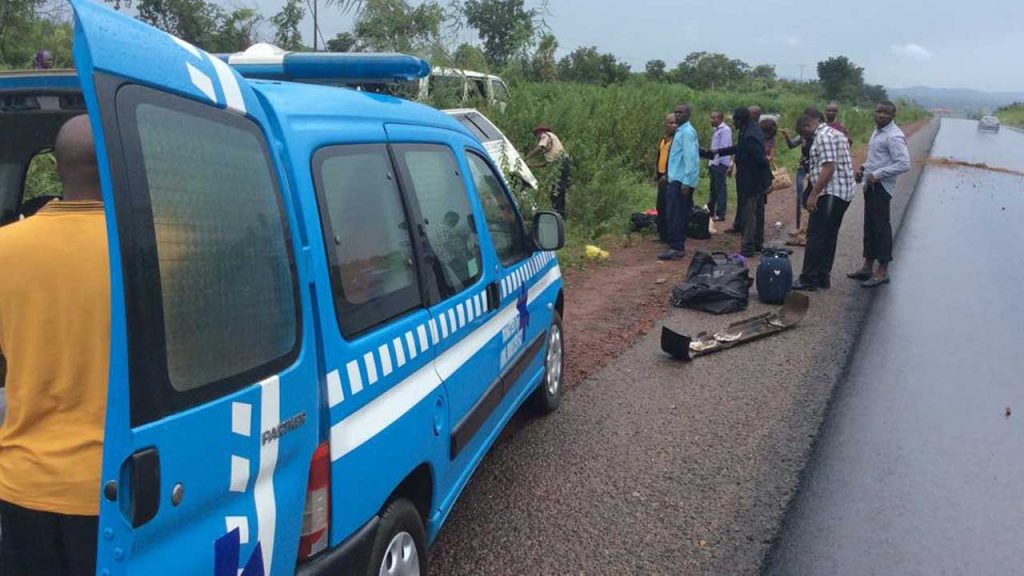The Federal Road Safety Corps (FRSC), Benue Sector Command, has revealed that 411 Nigerians lost their lives in 2024 while scooping fuel from fallen tankers.
The Sector Commander, Mr. Steve Ayodele, disclosed this in Makurdi on Tuesday during a town hall meeting with trailer and tanker drivers on crash prevention.
Ayodele explained that the deaths accounted for 7.6 per cent of all road traffic fatalities recorded in 2024, describing the figure as alarming and avoidable.
The meeting, themed “Discourage Fuel Scooping and Other Anti-Road Traffic Attitudes,” was aimed at reducing tanker-related crashes and their consequences.
“Tanker explosions often cause life-threatening burns, destroy shops, vehicles, and infrastructure, while also deepening the economic hardships of victims’ families. Fuel scooping and other anti-traffic behaviours are turning avoidable road accidents into major disasters,” Ayodele said.
He identified reckless driving, disobedience to traffic rules, roadside trading near accident-prone areas, and fuel scooping as practices that endanger lives.
According to him, unregulated driving hours, overloaded tankers, and inadequate safety inspections also remain major contributors to road crashes.
Ayodele urged drivers, community leaders, and government agencies to commit to changing attitudes and prioritising the protection of lives.
Also speaking, Mr. Babalola Sheba, Head of Operations, Nigerian Midstream and Downstream Petroleum Regulatory Authority (NMDPRA), condemned the environmental and health hazards of fuel scooping.
He warned that fuel spills contaminate soil, water, and air, with dire effects on drinking water, agriculture, and aquatic life. He added that inhaling fuel fumes could cause respiratory problems and skin irritation.
Sheba disclosed that the NMDPRA had resolved to mandate the installation of anti-spill safety valves and speed limiters on all petroleum product tanker trucks. He also revealed the introduction of a colour-coding system for fuel trucks: light blue for petrol, deep yellow and light blue for diesel, deep yellow for kerosene, black for aviation fuel, and deep green for biofuels.
In his remarks, Mr. Emmanuel Ogbanje, State Coordinator of the Vehicle Inspection Officer (VIO) Computerised Vehicle Inspection Service, stressed the need for regular vehicle inspections, compliance with axle load regulations, and strict adherence to traffic laws.
Ogbanje said:
“Safety is not a goal but a continuous process. Drivers must always carry valid licences, avoid overloading, and report unsafe practices.”
He called for increased public education and stronger collaboration among stakeholders to build a culture of road safety in Benue State and across Nigeria.


